Filter by
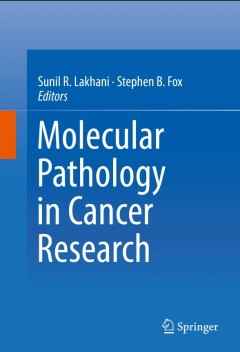
Molecular Pathology in Cancer Research
The aim of the book is to discuss the application of molecular pathology in cancer research, and its contribution in the classification of different tumors and identification of potential molecular targets, as well as how this knowledge may be translated into clinical practice, and the huge impact this field is likely to have in the next 5 to 10 years.
- Edition
- 1
- ISBN/ISSN
- 978-1-4939-6641-7
- Collation
- VIII, 369
- Series Title
- -
- Call Number
- -
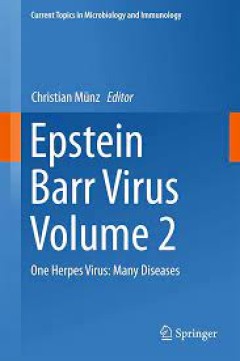
Epstein Barr Virus Volume 2 One Herpes Virus: Many Diseases
Epstein Barr virus (EBV) was discovered as the first human tumor virus around 50 years ago. Since its discovery in Burkitt’s lymphoma it has been associated with various other malignancies, infectious mononucleosis and even autoimmune diseases. The two book volumes on EBV summarize the first 50 years of research on this tumor virus, starting with historical perspectives on discovery, oncogeni…
- Edition
- -
- ISBN/ISSN
- 978-3-319-22834-1
- Collation
- VI, 505
- Series Title
- -
- Call Number
- -
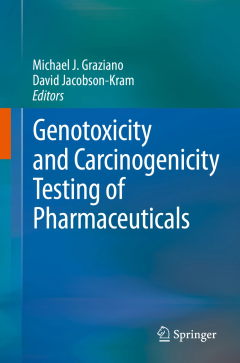
Genotoxicity and Carcinogenicity Testing of Pharmaceuticals
This book provides an overview of the nonclinical testing strategies that are used to asses and de-risk the genotoxicity and carcinogenicity properties of human pharmaceuticals. It includes a review of relevant ICH guidelines, numerous case studies where follow-up studies were conducted to further investigate positive findings, and practical considerations for the use of alternative and emergin…
- Edition
- -
- ISBN/ISSN
- 978-3-319-22083-3
- Collation
- X, 206
- Series Title
- -
- Call Number
- 616.9 GEN
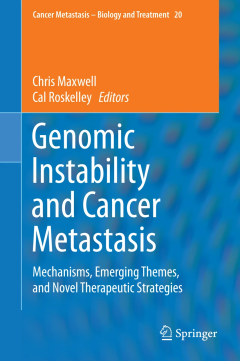
Genomic Instability and Cancer Metastasis
Metastasis is the primary cause of mortality associated with cancer, and tumor genomic heterogeneity is a likely source for the cells that support cancer progression, resistance to therapy, and disease relapse. This book connects cancer metastasis with genomic instability in a comprehensive manner. Section 1 outlines the fundamental mechanisms responsible for these cellular and tissue phenotype…
- Edition
- -
- ISBN/ISSN
- 978-3-319-12135-2
- Collation
- X, 247
- Series Title
- -
- Call Number
- 616.9 GEN
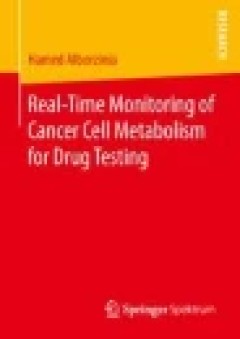
Real-Time Monitoring of Cancer Cell Metabolism for Drug Testing
Hamed Alborzinia uses the biosensor chip to monitor the metabolic and morphological changes in cancer cell lines in real time, particularly: (i) real-time measurements of basic cancer cell metabolism of different cancer cell lines; (ii) a detailed timeline of the metabolic response to cisplatin treatment and clear detection of the time span between start of cisplatin treatment and onset of cell…
- Edition
- -
- ISBN/ISSN
- 978-3-658-10161-9
- Collation
- -
- Series Title
- -
- Call Number
- 615
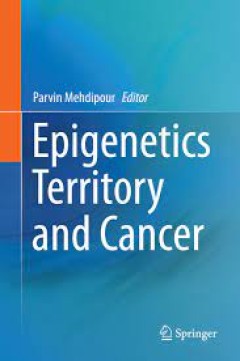
Epigenetics Territory and Cancer
This book explores epigenetic strategies, bridging fundamental cancer epigenetics, different paradigms in tumor genetics and translational understanding for both the clinic and improved lifestyles. The work provides target-based insights for treating different types of cancers and presents research on evolutionary epigenetics, introducing ‘Medical Epi- Anthropology’ and ‘Cancer Epi-Anthro…
- Edition
- -
- ISBN/ISSN
- 978-94-017-9639-2
- Collation
- 43 b/w illustrations, 53 illustrations in colour
- Series Title
- -
- Call Number
- -

Epigenetic Advancements in Cancer
This volume explores the epigenetic alterations and their association with various human cancers. Considering one of human cancer as an example, individual chapters are focused on defining the role of epigenetic regulators and underlying mechanisms in cancer growth and progression. Epigenetic alteration including DNA methylation, histone modification, nucleosome positioning and non-coding R…
- Edition
- -
- ISBN/ISSN
- 978-3-319-24951-3
- Collation
- 1 b/w illustrations, 11 illustrations in colour
- Series Title
- -
- Call Number
- -
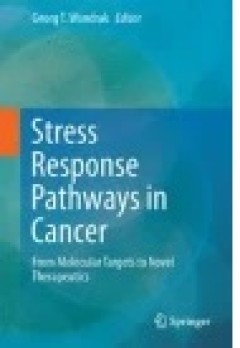
Stress Response Pathways in Cancer
It is now established that dysregulated cell stress response pathways play a critical role in tumorigenesis, and a refined mechanistic understanding of this phenomenon at the molecular level promises to open new avenues for targeted therapeutic strategies that may benefit cancer patients in the near future. Coauthored by recognized leaders in cancer research from five continents, this novel boo…
- Edition
- -
- ISBN/ISSN
- 978-94-017-9421-3
- Collation
- -
- Series Title
- -
- Call Number
- -

Strategies to Enhance the Therapeutic Ratio of Radiation as a Cancer Treatment
This volume will describe recent progress and future directions in radiation oncology and biology research, focusing on strategies designed to improve disease control and reduce the risk of long-term adverse effects on patients. As more and more patients are becoming long-term survivors, this strategy will become increasingly important--in radiation oncology and throughout the field of oncology.
- Edition
- -
- ISBN/ISSN
- 978-3-319-45594-5
- Collation
- -
- Series Title
- -
- Call Number
- -
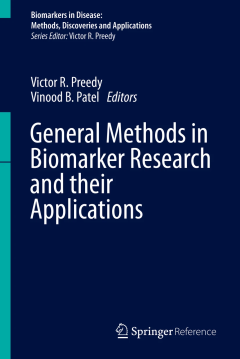
General Methods in Biomarker Research and their Applications
Professor Victor R. Preedy is a senior faculty member of King's College London (Professor of Nutritional Biochemistry) and King's College Hospital (Professor of Clinical Biochemistry). He is attached to both the Diabetes and Nutritional Sciences Division and the Department of Nutrition and Dietetics. He is also Director of the Genomics Centre and a member of the School of Medicine. Professor Pr…
- Edition
- -
- ISBN/ISSN
- 978-94-007-7695-1
- Collation
- -
- Series Title
- -
- Call Number
- 612.75
 Computer Science, Information & General Works
Computer Science, Information & General Works  Philosophy & Psychology
Philosophy & Psychology  Religion
Religion  Social Sciences
Social Sciences  Language
Language  Pure Science
Pure Science  Applied Sciences
Applied Sciences  Art & Recreation
Art & Recreation  Literature
Literature  History & Geography
History & Geography